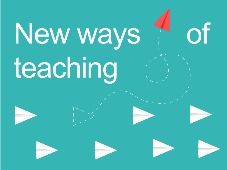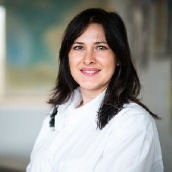Can we crack the code of effective learning at the university of Groningen?

In this monthly blog about new ways of teaching, educators talk about their innovative, creative and impactful teaching initiatives. From unusual teaching methods to new technologies - everything is covered. How did these ideas come about and what impact does it have on students?
This month: Audrey Rousse-Malpat, Assistant Professor of language learning at the Faculty of Arts about learning a new language.
The title of this blog is inspired by an article that I wrote in the online magazine The Conversation together with my French colleague Grégory Miras. In our piece, we describe the efforts of the Language Learning team of the Faculty of Arts of the University of Groningen and many highschool teachers in the Netherlands to improve the efficacy of foreign language teaching by aligning their teaching practices to research results in the field of applied linguistics. The approach mentioned in the article and pioneered in Groningen (among others) takes what research in applied linguistics calls “a usage-based turn”.

It is important to say that I am teaching a language, which is a complex skill to learn! Particularly because our students have to learn it in 30 ECTS! Besides the understanding of knowledge and culture, they also have to master vocabulary, expressions, routines and pronunciation. This means that, as teachers, we need to provide them with the best environment possible to use the language in class and outside of class and keep visibility of their progress.
Concretely, our goal in the Language Learning team is to create activities and projects in which our students will “use to learn” in opposition to “learn to use” (this is also the title of a dissertation on this subject recently defended by Wim Gombert). We have worked on effective feedback by organizing feedback sessions with peers and teachers, training our students to give feedback to each other, asking them to reflect on feedback and transform this reflection into concrete actions for improvement.
Inspired by research in this area, we understand the important role of “errors” in learning and have worked on ways to lower speaking anxiety as much as possible. We give space for individual learning trajectories by using adaptive online learning systems and gain visibility on their progress by gathering their individual and collective needs. After an analysis of their needs, we provide them with the activities and resources that will make them better.
Our students are usually motivated by the activities and projects they work on. They do not always like the movies that we ask them to watch or exercises we ask them to make but they see the added value of this approach. Some of them need a moment of adaptation at the beginning because it is very different from how they learned a language in highschool. They have shown their appreciation in the continuous efforts that we put in innovating in our teaching and have been happy to provide suggestions on how to improve the programme. We are constantly re-evaluating our programme to keep it relevant to the generation in front of us. So this is very much work in progress!
If these ideas sound like something you are interested in or are already doing, please reach out to me! I love to get inspired by good practices and/or organize sessions about how we can crack this code in Groningen!
Further reading
| Last modified: | 04 April 2023 10.10 a.m. |
More news
-
12 March 2025
Breaking news: local journalism is alive
Local journalism is alive, still plays an important role in our lives and definitely has a future. In fact, local journalism can play a more crucial role than ever in creating our sense of community. But for that to happen, journalists will have to...
-
11 March 2025
Student challenge: Starting Stories
The Challenge Starting Stories dares you to think about the beginning of recent novels for ten days.
-
11 March 2025
New: Sketch Engine, tool for language research
Sketch Engine is a tool for language research, which can also be used for text analysis or text mining.
